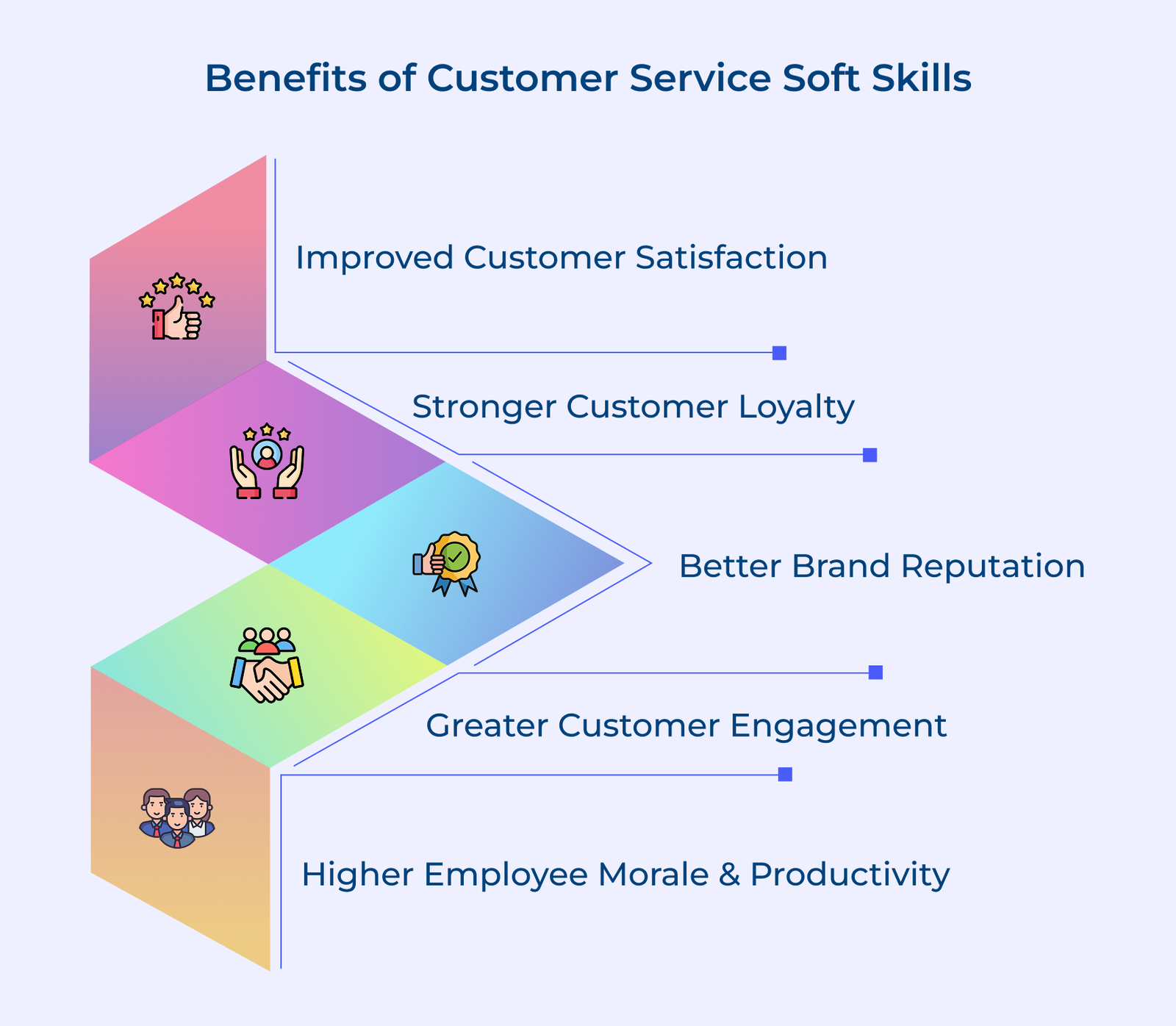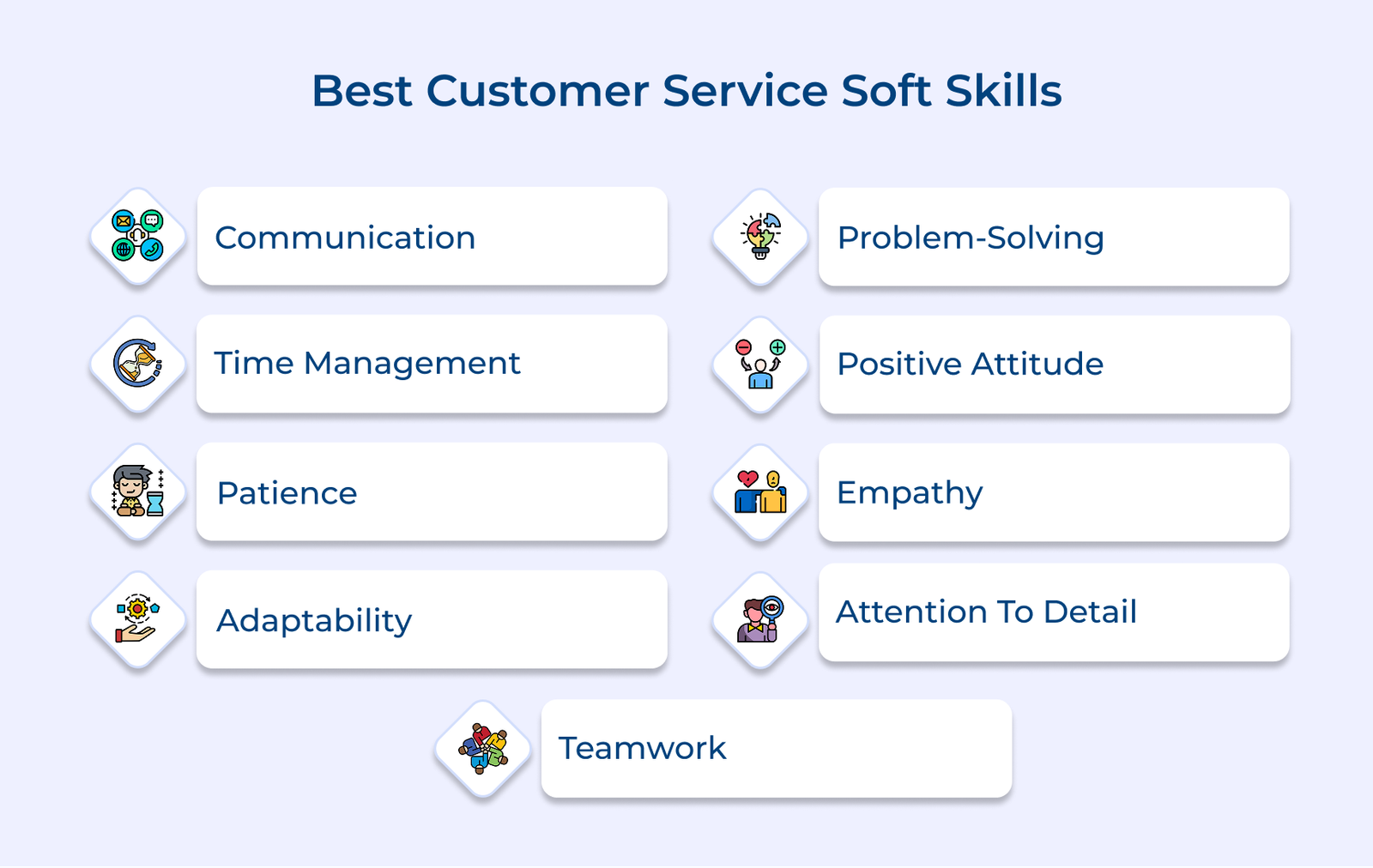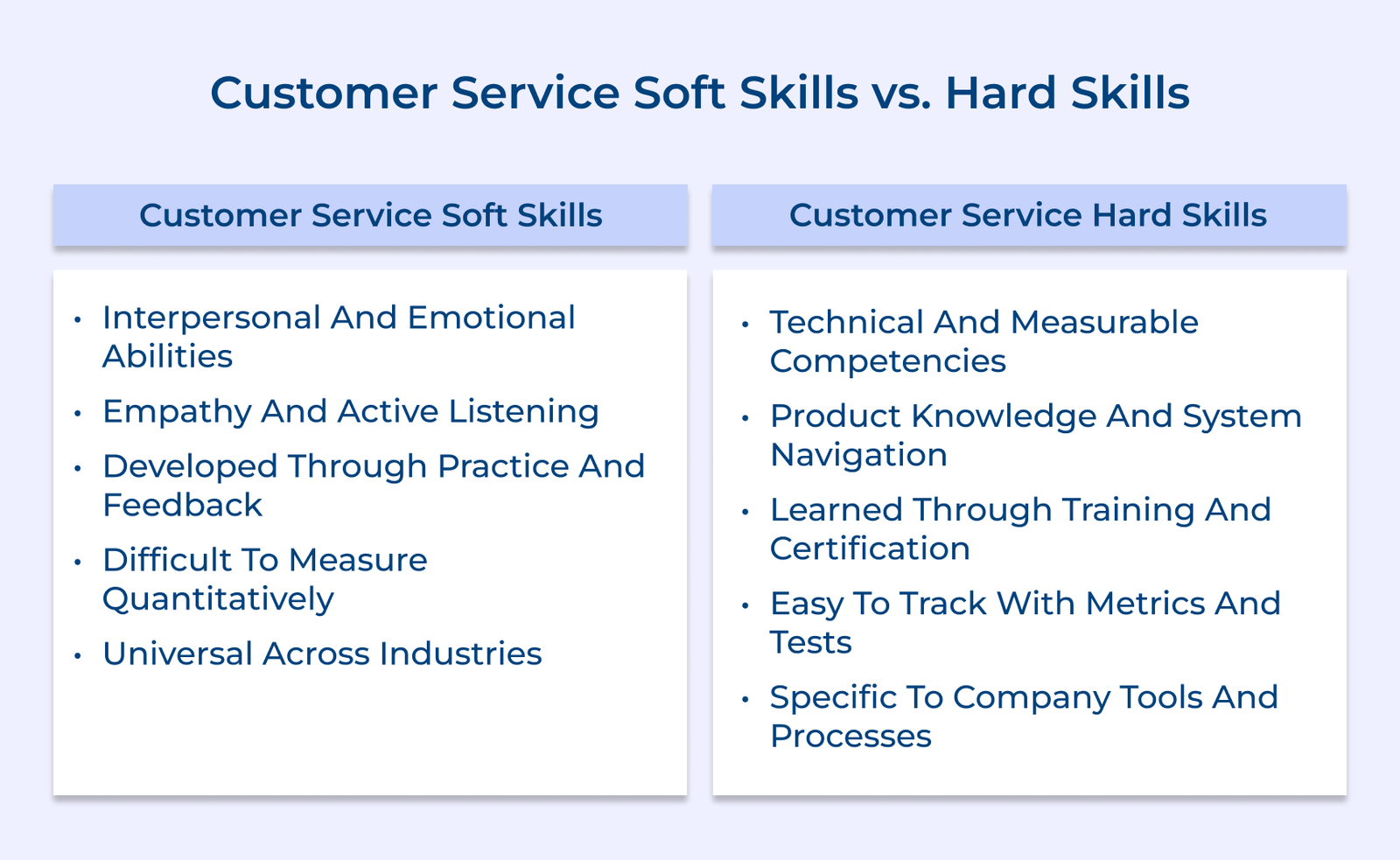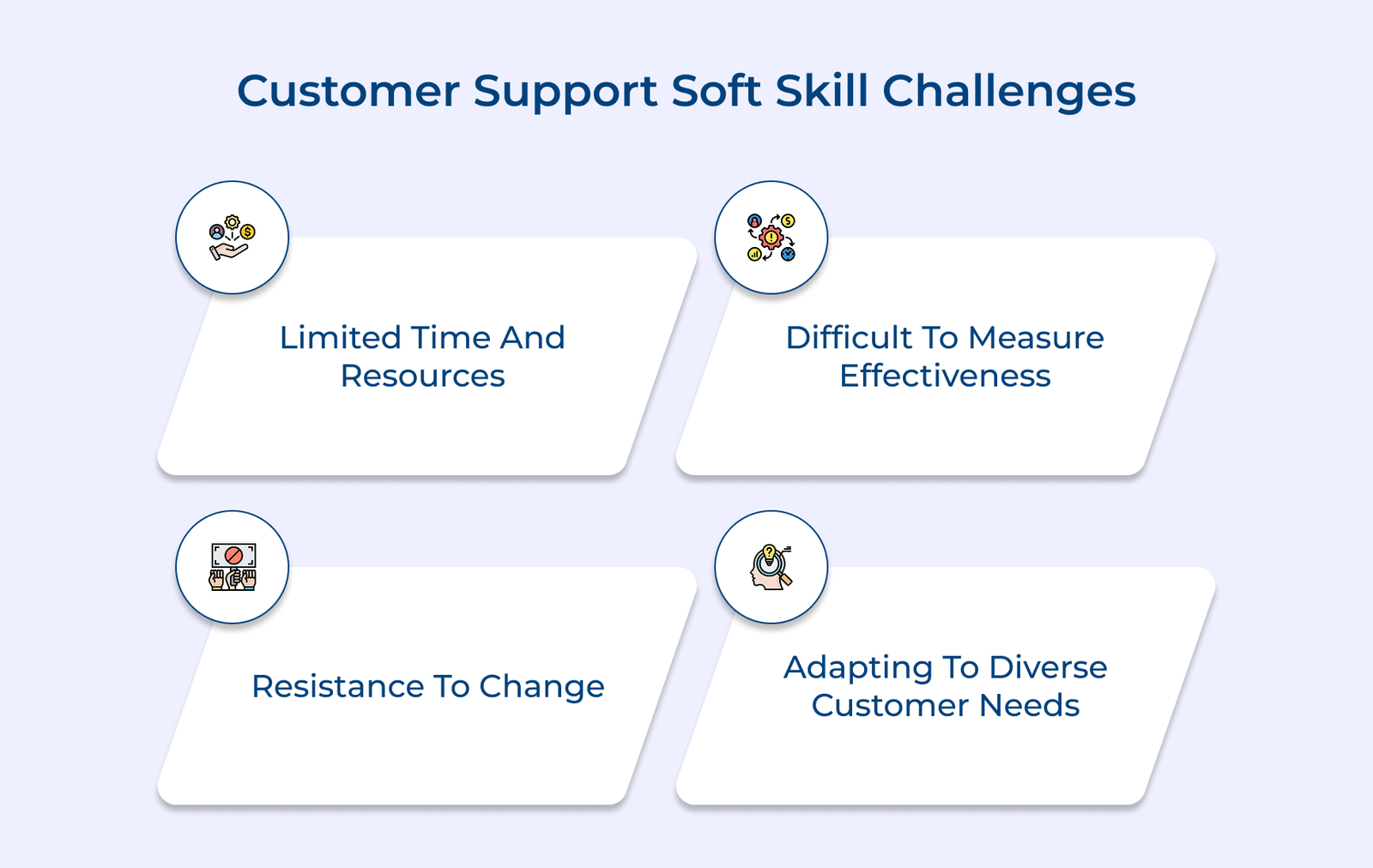1. Communication
Communication is one of the most important customer support soft skills. It’s not just about sharing information but about making sure customers feel heard, understood and respected. Strong communication, both verbal and non-verbal, directly shapes customer satisfaction.
Pro tips:
- Active listening: Focus fully on the customer’s words and tone. Avoid interrupting and ask clarifying questions to confirm you’ve understood their needs.
- Clear and simple language: Explain solutions in plain terms. Skip jargon and long explanations. Be direct, clear and easy to follow.
2. Time Management
Surprisingly, still today, 82% of people don’t use any time management system. Time management is an essential soft skill that can greatly impact the success of an individual and the satisfaction of customers.
Time management refers to the ability to effectively prioritize tasks, allocate time appropriately and meet deadlines in a customer service setting. It enables customer service reps to handle multiple tasks concurrently, ensuring that all customers receive prompt resolutions. Effective time management lowers stress, prevents burnout and helps reps stay professional with customers.
Actionable tips:
- Minimize distractions: Silence unnecessary notifications and create a focused workspace to stay on task.
- Use time-saving tools: Rely on software, autoresponders or templates to manage inquiries and respond quickly.
3. Patience
43 percent of consumers find long wait times to be the most frustrating part of customer service. Needless to say that patience is the ability to remain calm, composed and understanding in the face of challenging situations. It is not only important for resolving customer issues but also for maintaining positive relationships and leaving a lasting positive impression.
The quality allows customer service representatives to take the time needed to truly understand the customer’s concerns and provide a solution that meets their needs. It helps in diffusing tense situations, as customers appreciate being heard and understood.
Best practices:
- Practice active listening: Let customers explain their concerns without interruption. It shows their issues are taken seriously.
- Keep a positive outlook: Stay calm and respectful, even when dealing with difficult situations. A steady, positive attitude reassures customers and helps de-escalate conflict.
4. Adaptability
Customer service is rarely predictable; every customer and situation is different. Adaptability is the ability to adjust your approach quickly, handle unexpected challenges and provide solutions that fit each customer’s needs.
The concept refers to one’s ability to adjust and thrive in new or changing environments, as well as handle unexpected situations with ease. Customer service professionals face diverse challenges, making adaptability essential. Adaptability lets employees meet varying customer needs and ensure a positive experience.
Key takeaways:
- Build a diverse skill set: Keep learning new tools and approaches so you can handle a variety of customer needs with confidence.
- Stay open to feedback: Listen to input from customers or colleagues and use it to improve your approach.
5. Problem-Solving
Customers rely on service teams to resolve issues quickly and effectively. Strong problem-solving skills help reps analyze situations, root causes and come up with practical solutions.
The skills combine critical thinking, creativity and resourcefulness. Problem-solving skills enable agents to maintain a positive and professional attitude even in challenging situations, ensuring the best possible customer experience.
Pro tips:
- Listen carefully: Understand the customer’s issue fully by paying close attention and asking relevant questions.
- Think analytically: Break complex problems into smaller parts to identify the root cause and determine effective solutions.
6. Positive Attitude
A positive attitude marked by optimism, enthusiasm and a can-do mindset is a key customer service skill. It shapes interactions with customers and helps handle challenging situations calmly.
A positive approach sets the tone for every customer’s experience. When customers encounter a positive representative, it creates a welcoming environment and aids in striving for customer satisfaction.
Pro tips:
- Maintain a friendly demeanor: Smile and greet customers warmly. A genuine, approachable attitude makes customers feel valued.
- Practice empathy: Understand and acknowledge customer concerns. Showing empathy fosters trust and enhances rapport, even in challenging situations.
7. Empathy
Empathy is a powerful customer support soft skill that involves the ability to understand and share the feelings of the customer. It is essential for any customer service representative as it allows them to connect with customers on a deeper level, leading to increased satisfaction.
When a customer feels heard and understood, they are more likely to have a positive perception of the brand. Empathy can also help in diffusing difficult situations, as customers are more receptive to solutions when they feel that their emotions have been acknowledged.
Actionable tips:
- Put yourself in their shoes: Consider the customer’s perspective to respond with understanding and provide appropriate solutions.
- Use empathetic language: Acknowledge their feelings with phrases like “I understand how frustrating it is” or “I’m sorry for the inconvenience,” showing that their concerns are heard.
8. Attention to Detail
Attention to detail ensures accurate, thorough and personalized service. It helps representatives gather all necessary information, avoid mistakes and anticipate customer needs. The attention also leads to a smoother customer experience.
Key takeaways:
- Develop a system: Use checklists, templates or standard processes to keep track of tasks and interactions.
- Practice active listening: Focus on customer concerns, take notes and paraphrase to confirm understanding.
- Double-check work: Review information before sharing it to catch errors and ensure accuracy.
9. Teamwork
Excellent customer service often requires collaboration with colleagues or other departments. Being a team player enables you to work effectively with others, share knowledge and create a seamless customer service experience. When team members work together cohesively, they can effectively solve problems, handle difficult situations and provide support to one another.
Best practices:
- Enhance open communication: Encourage team members to actively listen and share their ideas. It creates a supportive environment where everyone feels heard and valued.
- Celebrate success together: Celebrate team achievements and milestones. It boosts morale and reinforces the importance of teamwork in achieving shared goals.
Customer Service Soft Skills vs. Customer Service Hard Skills
The following are the differences between customer service soft skills versus hard skills. Let’s check them out in more detail.















